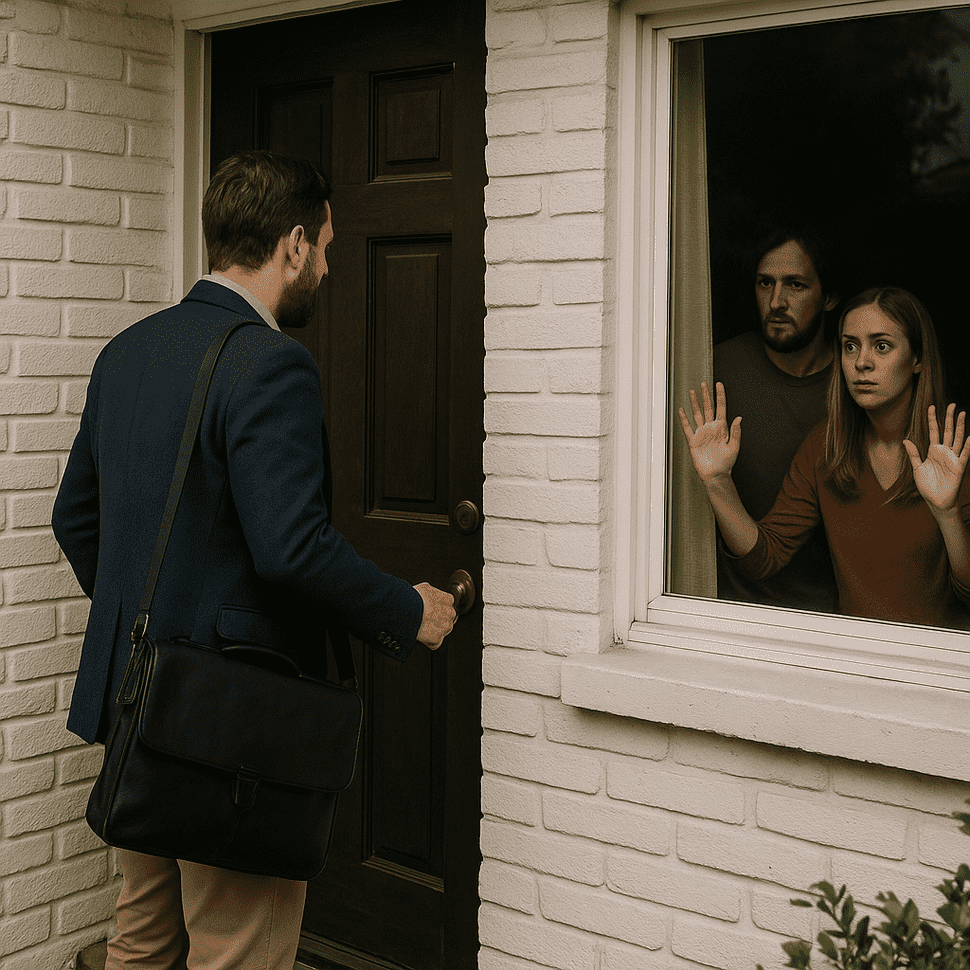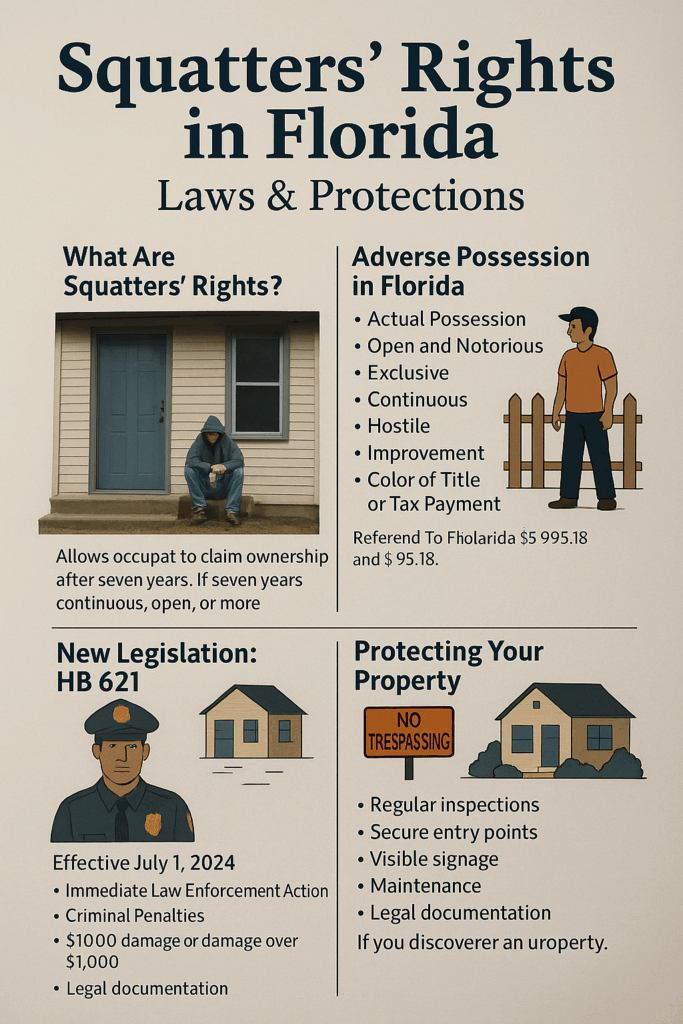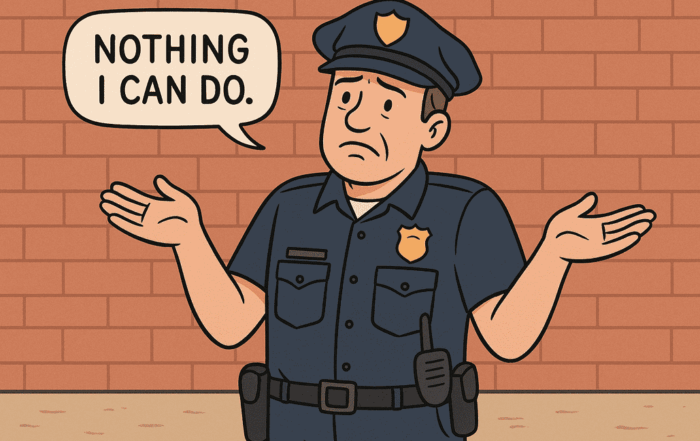
After 20 years of managing properties—and I’ve managed thousands—I still get a chill when I walk into a property and find someone living there who’s not supposed to be. Midnight squatters, one-night “guests,” or long-term folks trying to claim your property like they’ve been paying the mortgage? I’ve seen them all. Squatters are a real threat to investors. It’s a legal mess, a safety risk, and a massive financial headache.
If you’re investing in real estate, especially in Florida, you need to understand exactly what squatters’ rights are, how the laws are changing, and what you can do to protect your properties.
What Is a Squatter?
Let’s start with basics.
A squatter is someone who occupies a property they don’t legally own or rent. No lease, no permission, no business being there.
Sometimes it’s intentional—they’re trying to live rent-free. Other times, people get misled by shady Craigslist ads and think they’re renting legitimately. And sometimes, it’s just someone looking for shelter who saw a vacant house and thought, “Why not?”
Unfortunately, regardless of how it starts, it becomes your problem as the owner.
Real Talk From the Field
Over the years, I couldn’t even count how many times I’ve walked into a property and found someone squatting. Sometimes they’re inside. Sometimes they’re hanging out outside, making it hard to rent the place to a real tenant. Either way—it’s a problem.
Whenever I’m heading into a potentially vacant property, here’s what I do (and what I recommend to every investor):
-
Never go alone. Always take a second person.
-
If there’s any chance someone is inside, call the police first.
-
File a police report. Always. It helps create a record, and you’ll need it later.
-
Install camera signs—even fake ones help.
-
Pick up official “No Trespassing” signs from your city or county office. These are critical. With them posted, law enforcement can act more quickly.
-
Check properties weekly if they’re vacant. Especially after storms or if construction was delayed.
Some squatters try to claim they were invited or that they signed a lease with someone else. That’s why documentation and being proactive matters.
Understanding Squatters’ Rights in Florida
You’ve probably heard the term adverse possession. That’s the legal term that gives squatters a path to claiming ownership—yes, ownership—of property that isn’t theirs. Sounds crazy, right? But it’s real.

Florida’s Requirements for Adverse Possession
To legally claim a property through adverse possession in Florida, a squatter has to meet several specific criteria. It’s not easy, but it’s possible.
Here’s the breakdown:
-
Actual Possession
They must physically live on the property—mowing the lawn, fixing stuff, staying there full-time. -
Open and Notorious Use
Their presence can’t be hidden. They must act like they own it in broad daylight. -
Exclusive Possession
They can’t share with the rightful owner or other squatters. They must have sole use. -
Continuous Possession
They must live there uninterrupted for seven full years. -
Hostile Possession
No permission. If they were ever tenants, this doesn’t count. -
Color of Title or Property Taxes
They either have a flawed deed (color of title) or have paid property taxes on the property for the entire seven years.
You see how hard that is? But once a squatter meets those criteria, they can go to court and try to get title.
Why This Matters for Investors
As an investor, you can’t afford to ignore even one squatter incident. Here’s why:
-
A squatter claiming adverse possession can lock up your property for years in court.
-
If you’re mid-renovation or planning a sale, everything stalls.
-
Insurance may not cover damages caused by squatters.
-
If word spreads that your properties are easy targets, it can attract more squatters.
One squatter can lead to thousands in legal bills, months of lost rent, and a nightmare for your property manager.
2024 Law Update: Florida House Bill 621
Now here’s the good news.
In 2024, Florida passed House Bill 621 (HB 621), and this changes everything. Starting July 1, 2024, property owners can take action without going through the full eviction process in certain cases.
What HB 621 Means for You
Under this new law, if someone is unlawfully on your property, you can ask the sheriff to remove them without needing a court eviction, as long as:
-
The person entered without permission
-
You’ve told them to leave, and they’ve refused
-
They’re not a legal tenant (no lease, no eviction in progress)
This Law Helps You Move Fast
Instead of waiting months for an eviction hearing, filing forms, and paying fees, you can now:
-
Call the sheriff
-
Provide proof of ownership
-
Show the individual has no legal right to stay
-
Have them removed quickly and legally
And this law adds real penalties for fake squatters, too:
-
First-degree misdemeanor for using fake documents (like a forged lease)
-
Second-degree felony for causing more than $1,000 in property damage
-
First-degree felony for advertising a home for sale or rent without being the owner
This is the strongest anti-squatter law Florida has ever had. And it’s a huge win for landlords and real estate investors.
Types of Squatters You’ll Run Into
Here’s something most legal articles don’t mention—but I’ve seen it firsthand:
1. The “Craigslist Victim”
Someone thinks they legitimately rented the property. They even have a lease—often fake. They paid cash to a scammer and now feel like they’re the victim.
2. The Opportunist
They saw a vacant home and walked in. They might even move in furniture. Some try to fix the place up. They think they’re doing you a favor. They’re not.
3. The Homeless Drifter
Sometimes it’s just someone looking for shelter. It might be temporary. But once they’re inside, getting them out still requires legal steps.
4. The Professional Squatter
Yes, they exist. These folks know the law. They know how to stall an eviction, fake documentation, and talk smooth. These are the most dangerous kind.
How to Protect Your Investment Properties
Don’t wait until you have a squatter to act. Prevention is 10 times easier than removal.
Here are my best tips:
1. Keep Properties Secure
-
Change locks between tenants
-
Board up vulnerable windows or access points
-
Use smart locks or coded keypads with audit trails
2. Make It Look Occupied
-
Leave lights on timers
-
Ask neighbors to park in the driveway
-
Cut the lawn weekly
3. Post No Trespassing Signs
-
Get official city-issued signs
-
Post them prominently
-
Take photos to prove they’re posted
4. Inspect Frequently
-
Walk the property weekly
-
Send a handyman to check access points
-
Take photos of the inside if vacant
5. Use Cameras & Alarms
-
Even a simple Ring camera works wonders
-
Post signs that video surveillance is active
-
Hook up motion sensor floodlights
What to Do If You Discover a Squatter
Let’s say worst case happens—someone’s already inside.
Here’s what to do:
-
Call the Police Immediately
Tell them someone is occupying your property without permission. -
Do NOT Accept Rent or “Work”
If you accept anything from them, they could claim they’re a tenant. -
Get a Police Report
You’ll need this for insurance and court, if it goes that far. -
Contact Your Attorney
Especially if it’s not clear how they got in. -
Use HB 621 If Applicable
If they’re not a tenant, use the sheriff removal process.
What Happens If They Claim to Be Tenants?
If someone shows a lease or claims to have paid rent, you may have to go through a traditional eviction process in civil court. That’s why it’s key to have documentation, and why not accepting money or communication from them is so important.
If you do need to evict:
-
File a 3-day or 7-day notice, depending on the situation
-
Then file for eviction in court
-
Wait for a hearing, then request a writ of possession
This process can take 30–90 days or longer. That’s why HB 621 is so valuable when applicable.
Final Thoughts From the Field
Squatters are not just a nuisance. They are a legal and financial threat.
But with Florida’s updated laws and the right steps, you can protect yourself. Be proactive, be thorough, and never assume it can’t happen to you.
As someone who’s had every kind of squatter situation you can imagine, I’m telling you: a little prevention saves a mountain of headache.
If you’re unsure what to do or need help building systems around this, let’s connect.
Keep it consistent, stay patient, stay true—if I did it, so can you!
Ready to connect and strategize? Contact me at graystoneig.com/ceo – Jorge Vazquez, CEO of Graystone Investment Group & its subsidiary companies and Coach at Property Profit Academy.
Pick your expert. Book your free 15-minute consult now. We are here to help!
Our Top Articles
August 2025 Rental Market Report – Tampa Bay & Central Florida
Tampa Bay & Central Florida Rental Market – August 2025 Verification A Clearer Picture of Rents, Market Trends, and [...]
Jorge Vazquez Featured on “REalizations” Podcast with Andrea Gordon – Full Interview Coming Soon
FOR IMMEDIATE RELEASE Jorge Vazquez Featured on “REalizations” Podcast with Andrea Gordon – Full Interview Coming Soon Tampa, FL [...]
What’s Needed to Remove a Squatter
“Nothing I Can Do”: What It Really Takes to Remove a Squatter in Florida Let me tell you a [...]
Property Profit Academy:
✔ Learn to buy properties with little to no money down.
✔ Build a $10M portfolio step by step.
✔ Master strategies like BRRRR and house hacking.









